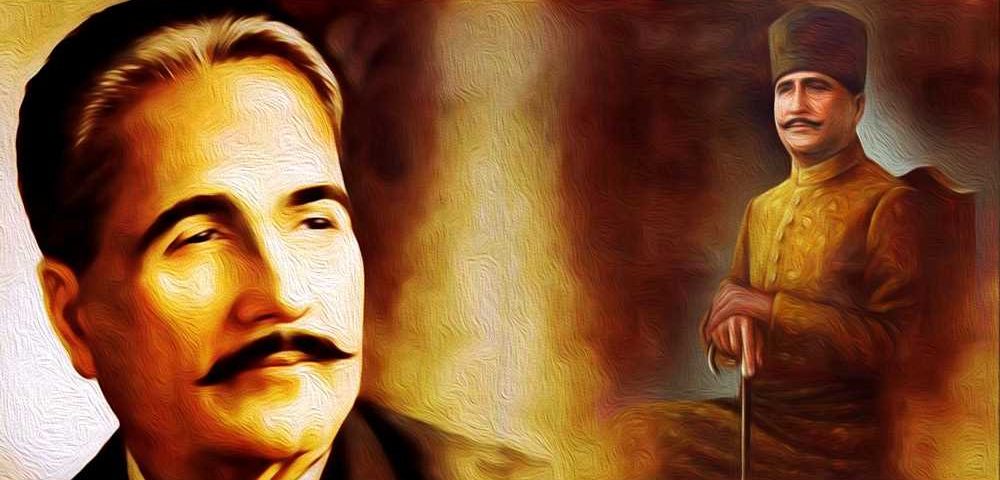‘The author Khaled Ahmed is a writer in Dawn News’.
The renowned poet and philosopher Allama Muhammad Iqbal has been transformed by Pakistan’s ideological transformation into a supporter of its hardening worldview. His state-approved and clerically-backed status as an orthodox thinker opposed to every modernist revision makes it dangerous to review how he has been “reinterpreted” into an ideological platitude. He is occasionally labeled as “orthodox” by secular pundits who want for an identity regression while hailing Sir Syed Ahmad Khan as the ultimate modernist. However, consistent evidence from his life contradicts this conventional categorization.
Iqbal’s relationship with Pakistan reached its peak on December 25, 1986, some 48 years after his passing. It occurred at a national conference that General Ziaul Haq presided over in Karachi on the anniversary of the birth of Quaid-i-Azam Mohammad Ali Jinnah, the state’s founder. What Is Pakistan’s Number One Problem? was the seminar’s topic. The son of Allama Iqbal, who was then serving as a Supreme Court of Pakistan judge, was present among the invitees. Justice Javed gave a statement at the event in which he outlined his father’s opposition to the Hudood (Quranic punishments) that Gen. Zia had imposed in Pakistan.
The controversial phrasing from the Sixth Lecture in Allama Iqbal’s book, The Reconstruction of Religious Thought in Islam, was: “The Shariat values (Ahkam) resulting from this application (e.g. rules relating to penalties for crimes) are in a sense specific to that people; and since their observance is not an end in itself they cannot be strictly enforced in the case of future generations.”
Gen Zia’s response was contemptuous of Allama Iqbal rather than the Hudood he had put in place to placate his sizable clerical hinterland. When his Federal Shariat Court ruled that stoning to death (Rijm), which is not mentioned in the Quran, cannot be a Hadd, that is, a punishment in the Penal Code, he had run into difficulties with the clergy. In order to keep Rijm, he had to alter the Court.
Iqbal was prescient, though, as Pakistan has never been able to lop off hands for stealing or stone any women to death despite Rijm being on the books. More literalist Iran abandoned the horrifying Rijm practice in 2014.
The Federal Shariat Court outlawed bank interest in 1991 yet it is still used today in Pakistan, despite the fact that Aristotle and the Quran both clearly reference Riba (usury) in their works. Islamic banking actually forbids the taking of Riba, and does so in accordance with a convoluted self-admitted Heela policy (subterfuge).
Iqbal explained and unambiguously accepted bank interest as the lifeblood of commerce in Ilmul Iqtisad (1904), his first book in Urdu that served as an introduction to how a modern economy functioned, despite the fact that it was thought to be prohibited by the clerics and accounted for so few Muslims in India’s commercial sector. By agreeing with Sir Syed Ahmad Khan that “interest-banking was not the same as Riba/usury,” he was able to accomplish this.
LIKE NO OTHER
Prodigy Allama Iqbal was. He won first place in grade one at Scotch Mission School in Sialkot in 1885, and he then started receiving Persian and Arabic lessons in a mosque. When he first began composing his teen poems in Urdu, he was in class nine. He received a medal and scholarship for graduating in the top third of his class. He began composing verse in his first year at Scotch Mission College and was published in literary publications using the pen name Iqbal.
In addition, Iqbal received a monthly salary of 72 rupees and one anna for his work as the Macleod Arabic Reader at Oriental College in Lahore. Later, he left Oriental College for a while to work as an English teacher at the Government College. His writings had begun to reflect the influence of Wordsworth, Spinoza, Hegel, Goethe, Ghalib, Bedil, Emerson, and Longfellow.
Sir Syed Ahmad Khan, whom he believed to be the Baruch Spinoza (d.1677) of Islam who rationalised and demystified the scriptures, was unassailable in his opinion. His duties at Oriental College included translating literature from English and Arabic into Urdu and teaching economics to Bachelor of Oriental Learning students.










